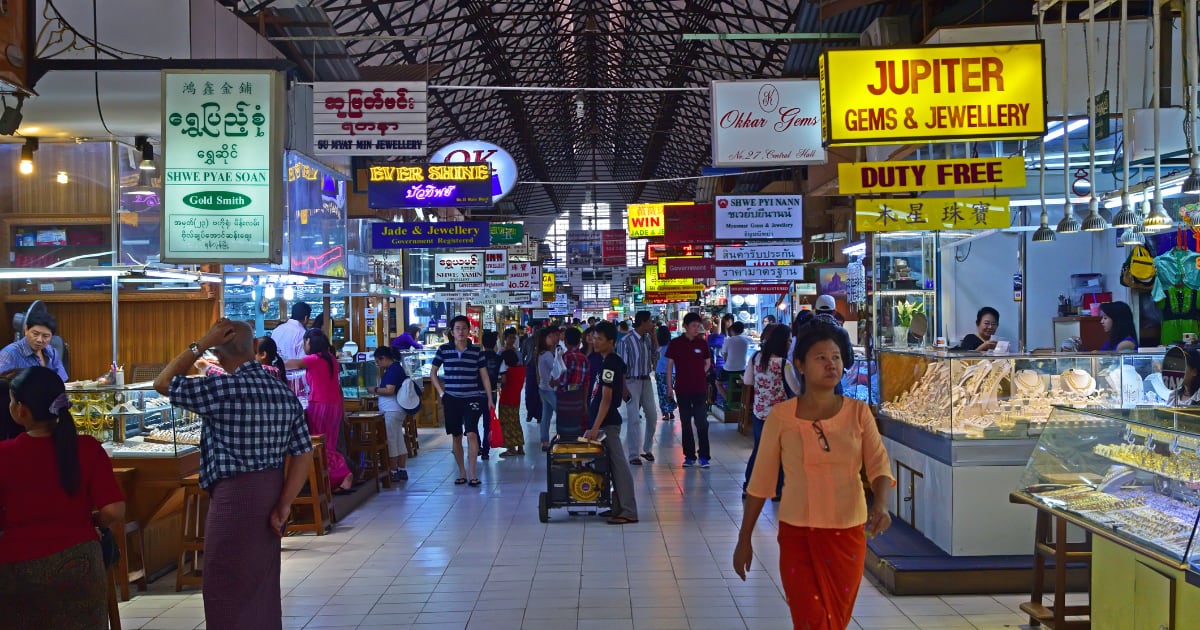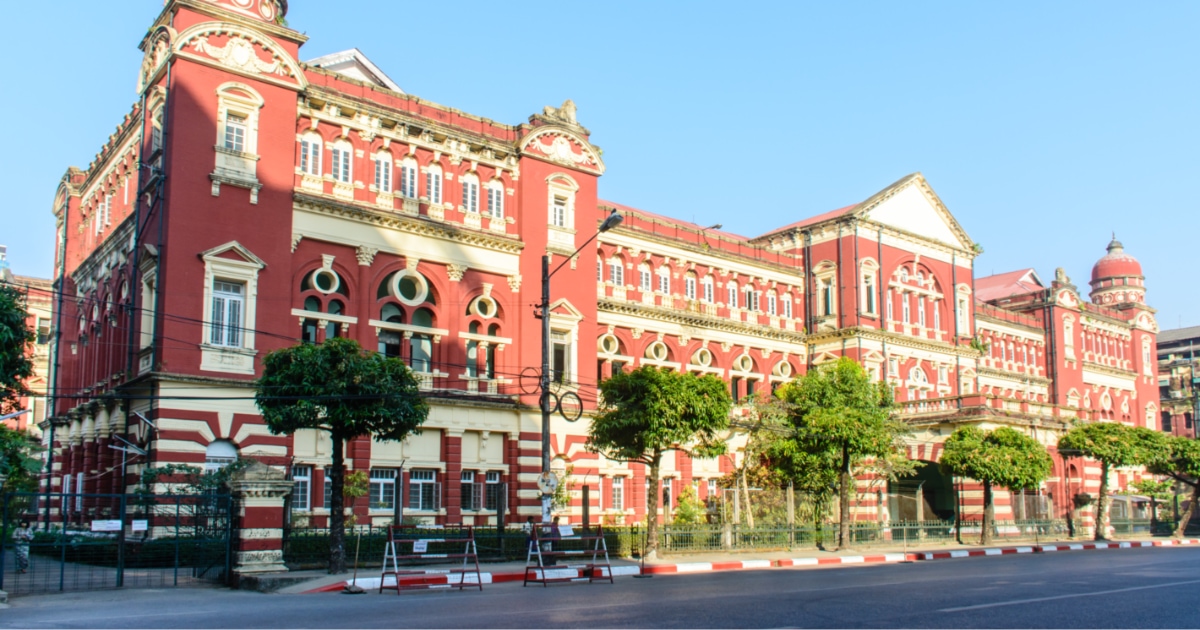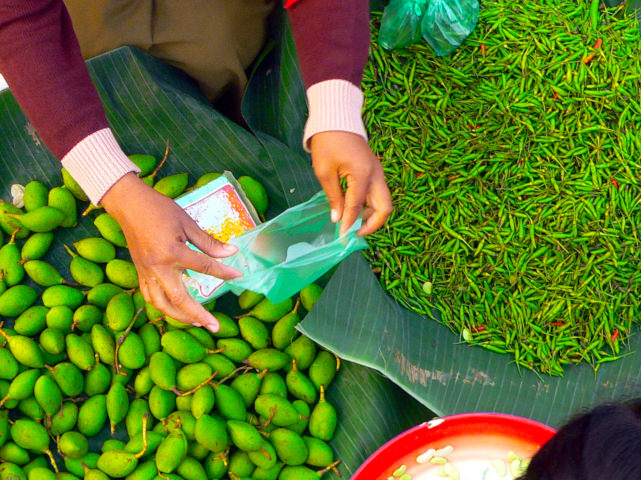Download PDF | Download word version
On 28 March 2020, Myanmar imposed sweeping restrictions with an Announcement on Temporary Suspension of all Types of Visas for Foreign Nationals from all Countries Visiting Myanmar in an effort to prevent the spread of the COVID-19 pandemic.
The suspension covers visitors from all countries, including those from ASEAN member countries, and will be effective from 29 March 2020 to 30 April 2020. If however a foreign national must visit Myanmar on an urgent official mission or for a compelling reason, they may be granted an exemption from the relevant authorities.
Diplomats accredited to Myanmar and United Nations officials resident in Myanmar may however obtain entry visas through respective Myanmar Missions abroad, subject to providing certification of negative testing for COVID-19 from a recognised laboratory no more than 72 hours prior to travel. On arrival in Myanmar, such individuals will be subject to home quarantine for 14 days.
Crews of ships or aircraft operating to and from Myanmar may also obtain entry visas through respective Myanmar Missions abroad and must follow latest guidelines and directives issued by the Ministry of Transport and Communication of the Republic of the Union of Myanmar.
This restriction follows the declaration of the COVID-19 outbreak as a global pandemic by the World Health Organisation (WHO)[1] on 11 March 2020 and the global recognition of COVID-19 as not only a health crisis, but a financial and economic crisis. Industries across the spectrum have been impacted by the rapid development, spread and uncertainty which have triggered governments across the world to implement emergency measures in an effort to contain the spread of the virus. We have seen the forced closure of factories, compulsory quarantine, the grounding of flights and ‘work from home’ procedures being implemented by employers, particularly in the People’s Republic of China (PRC).
Such restrictions and disruptions have exposed parties to potential liability for failure to perform timeously (or at all) their duties pursuant to contracts entered into. It is within this context that we explore whether COVID-19 can constitute force majeure under a contract.
For a discussion of COVID-19 and force majeure in the context of Hong Kong and PRC law, please see Charltons’ March 2020 Newsletter.
-
Force Majeure Clauses
Force majeure is a French phrase which directly translates to superior force. In Latin, a similar phrase, casus fortuitus means a fortuitous case, an uncontrollable accident or an act of God (hurricane, flood, earthquake, volcanic eruption, etc.).
Despite force majeure being a civil law concept, in English common law it is generally understood to mean an event or circumstance that occurs and which prevents one (or both) parties to the contract from fulfilling their obligations under the contract.
There are generally three essential elements of a force majeure event:
- occurring with or without human intervention;
- not reasonably foreseen by the parties; and
- beyond the parties’ control and consequences which could not have been prevented.
In the event of force majeure, both parties may extend the timeframe to carry out the responsibilities contained in the contract with mutual consent if they wish to continue implementing the contract. Otherwise, they may terminate the contract if they consider they are unable to perform their obligations.
Force majeure clauses are also a means of allocating risk in a contract, excusing non-performance of a contractual obligation upon the occurrence of a specified, unforeseeable (or at least unpredictable) event or circumstance that is beyond the parties’ control.
-
Force Majeure and Frustration in Myanmar
- Force Majeure The legal system in Myanmar is based on English common law and there is no generic definition of force majeure in common law. Rather, it is a matter of contractual interpretation in each case and the defaulting party must prove that:
- one of the events referred to in the force majeure clause has occurred;
- they have been prevented, hindered or delayed from performance by that event;
- non-performance was due to circumstances outside of their control; and
- there were no reasonable steps that could have been taken to avoid or mitigate against the event.
Upon proving the above, parties will not be liable for their failure to perform and are typically:
- entitled to cancel the contract;
- excused from performance of the contract, either in whole or in part; or
- entitled to suspend performance or to claim an extension of time for performance.
Further, whether or not a certain instance of non-performance may be determined is based on the facts of a specific case and the language of the applicable force majeure clause in question.
In light of the current circumstances, before entering into any new contracts, it is advisable that parties include a clause in their contracts which deals with a possible escalation of the current outbreak, however given that COVID-19 is now a known and foreseeable event, it is unlikely that any party entering into the contract will be able to successfully rely on COVID-19 as a force majeure event as it is arguable that a party entering into an agreement should have taken steps to mitigate against the potential impact(s).
- Frustration If there is no force majeure clause in a contract, the question of whether the contract has been frustrated can be considered and where a frustrating event occurs, the contract will terminate automatically.
The frustrating event must significantly change the nature of the outstanding contractual rights or obligations and can be considered as an event which is:
- unexpected;
- beyond the parties’ control; and
- makes performance impossible or radically different from that which the parties contemplated at the time of entering into the contract.
The primary case in Myanmar is Rangoon Telephone Company Limited v. the Union of Burma 1948,[2] involving the Rangoon Telephone Company (the Company), which was operating telephone and telegraph undertakings in Rangoon and Moulmein (now “Mawlamyine”) under a licence prior to the Japanese occupation (1942 – 1945).
Clause 8 of the licence gave the Government the right to buy the Company out and its election to purchase the undertakings on 31 March 1943 was communicated on 4 March 1940. Subsequent to this communication, the War broke out and part of the undertakings were demolished.
The Company demanded payment of the money due under the contract, and sued the Government to recover Rs. 24,93,490-2-6, which the Company stated was the value of undertakings agreed to be transferred to the Government.
The court held that the contract was frustrated by reason of the War, citing the applicability of the doctrine of frustration as applied in English law, enshrined in section 56 of the Contract Act and noting the definition by Viscount Simon in Cricklewood Property and Investment Trust Limited v. Leighton’s Investment Trust Limited,[3] which defines frustration as the occurrence of an intervening event or change of circumstances so fundamental as to be regarded by the law both as striking at the root of the agreement and as entirely beyond what was contemplated by the parties when they entered into the agreement.
Therefore, a contract may be discharged on the ground of frustration when something occurs after the formation of the contract which renders it physically or commercially impossible to fulfil the contract or transforms the obligation to perform into a radically different obligation from that undertaken at the time of entry into the contract.
- Force Majeure The legal system in Myanmar is based on English common law and there is no generic definition of force majeure in common law. Rather, it is a matter of contractual interpretation in each case and the defaulting party must prove that:
-
The Impact of COVID-19 on Myanmar Economy
On 19 March, 2020, the Myanmar Investment Commission (MIC), which oversees investments in Myanmar, recognised the COVID-19 induced economic slowdown being felt in other countries and noted the likely impact on Myanmar,[6] with MIC Secretary, U Thant Sin Lwin, emphasising that Myanmar should prepare to respond to the situation.
Given that 26 percent of Foreign Direct Investment (FDI) in Myanmar comes from Mainland China, and other top investors including Singapore, Thailand and Hong Kong, the consequences for Myanmar will be significant.[7]
The impact has so far been felt most notably on the manufacturing and tourism sectors. At least 20 of the 500 factories in Myanmar having shut down, a majority belonging to the garment manufacturing sector owing to raw material shortages,[8] a consequence of factory closures in Mainland China and supply chain disruptions. The drop in visitor numbers has also seen tourism companies’ revenue severely impacted, with the Myanmar Tourism Entrepreneurs Association (MTEA) seeking a K50 billion loan from the Government.[9]
Meanwhile, a sharp drop in cross-border trade has impacted traders and farmers who rely on exports to China, Myanmar’s biggest trading partner, with Myanmar losing the equivalent of US$ 16 million per day in border trade alone. Comparatively, during the 2018-19 fiscal year, total trade between Myanmar and China reached US$ 11.3 billion, with total bilateral trade through the Muse checkpoint being worth US$ 4.9 billion of the total.[10]
While trade has gradually restarted, now returning to 80 percent of what it was prior to the outbreak, the depreciation of the Yuan against the Kyat has presented a further issue as Chinese buyers have stopped purchasing.[11] At the end of 2019 / early 2020, the exchange rate was 4.90 Yuan for K1000, weakening to 5.35 Yuan for K1000 by 10 March 2020.[12]
Economist and Researcher, U Zaw Oo, also noted the potential delay or suspension of four major projects under the Belt and Road Initiative (BRI), namely the Muse Cross Border Trade Zone, China-Myanmar Economic Corridor, Kyaukphyu Special Economic Zone, and the New Yangon City Project, all of which are reliant on China’s economic situation, materials and supplies.
-
Government Steps to Combat the Effects of COVID-19 on the Myanmar Economy
The Working Committee to address the impact of COVID-19 on Myanmar’s economy was formed to consider measures to address the negative impacts of the virus and additional measures to be taken by the government and the private sector and a meeting was held in Yangon on 14 March 2020.[13]
On 18 March 2020, the Central Committee on Prevention, Controlling and Treatment of COVID-19 held a coordination meeting, a regular meeting to remedy economic repercussions.[14]
The following steps will be taken:
- CMP businesses, hotels and tourism companies and small and medium enterprises (SMEs) will be categorised as priority sectors for remedial solutions;
- A COVID-19 Fund will be established at the Myanma Economic Bank with a capital of K100 billion, composed of K50 billion from the National Resolving Fund approved by the Union Government and K50 billion from the Social Security Fund; and
- The COVID-19 Fund will also be used to provide loans to CMP businesses, hotels and tourism companies and SMEs owned by Myanmar nationals who are suffering the most negative economic consequences, at an interest rate of 1 percent and a loan period of one year, with the interest rate and loan period potentially being adjusted depending on the severity of the economic loss incurred.
As regards the quarterly income tax and monthly commercial tax for 2019-2020 fiscal year for CMP businesses, hotels and tourism companies and SMEs, the following steps will be taken:
- The payment period for income tax payments for the second quarter (due on 31 March 2020) and for the third quarter (due on 30 June) for the 2019-2020 fiscal year will be extended to 30 September 2020;
- The payment period for monthly payments for the commercial tax of 2019-2020 fiscal year that will begin on 31 March 2020 to 31 August 2020 will be extended to 30 September 2020.
With approval from the Union Government, 2 percent income tax levied in advance for export will be exempted until the end of the 2019-2020 fiscal year.[15]
Under this Notification, the government grants CMP businesses, hotels and tourism companies and SMEs owned by Myanmar nationals who are suffering the most negative economic consequences by categorizing as priority sectors for the entitlements of loan, extension of tax payment period and income tax exemption for export.
- Recommended Steps to Take
If you are concerned that force majeure may impact you, proactivity is recommended. You should review your contracts and look for the following:
- Does COVID-19 fall within the definition of a force majeure event?
- What is the threshold of non-performance that may trigger a party to invoke the force majeure clause i.e. will a mere delay in performance allow a party to invoke the clause?
- If you wish to rely on the clause, what steps must you take before you can invoke the clause?
- Do you need to take active measures to mitigate against the loss that may be caused by the force majeure event?
The circumstances surrounding COVID-19 are rapidly. Whether your business is unable to perform or anticipating a contracting party’s nonperformance, the potential costs, impact of time, and ability to mitigate in every situation should be documented. If a party is unable to perform based on the impact of COVID-19, this possibility should be raised as early as possible.
[1] https://www.who.int/dg/speeches/detail/who-director-general-s-opening-remarks-at-the-media-briefing-on-covid-19—11-march-2020
[2] (1948 B.L.R (HC) 527)
[3] 1943 A.C. 32
[4] https://www.ft.com/content/bca84ad8-5860-11ea-a528-dd0f971febbc
[5] Ibid.
[6] https://www.mmtimes.com/news/covid-19-will-lead-slower-myanmar-economy-mic.html
[7] Ibid.
[8] https://www.mmtimes.com/news/least-10000-now-unemployed-yangon-garment-sector.html
[9] https://www.mmtimes.com/news/tourism-industry-body-seek-financial-help-govt.html
[10] https://www.irrawaddy.com/news/burma/virus-hit-china-closed-business-myanmar-exporters-feel-pinch.html
[11] https://www.mmtimes.com/news/another-problem-border-trade-following-virus-outbreak.html
[12] ibid.
[13] https://www.globalnewlightofmyanmar.com/working-committee-holds-meeting-to-address-impact-of-covid-19-on-countrys-economy/
[14] https://www.globalnewlightofmyanmar.com/covid-19-central-committees-daily-meeting-continues-on-video-conferencing/
[15] The Global New Light of Myanmar, the Government Newspaper, released on 19 March, 2020, p-4; https://www.globalnewlightofmyanmar.com/
COVID-19 and Force Majeure in Myanmar: What you Should Know
Force Majeure Clauses
Force Majeure and Frustration in Myanmar
Force Majeure in the PRC
The Impact of COVID-19 on Myanmar Economy
Government Steps to Combat the Effects of COVID-19 on the Myanmar Economy
Recommended Steps to Take
This newsletter is for information purposes only. Its contents do not constitute legal advice and it should not be regarded as a substitute for detailed advice in individual cases.
Transmission of this information is not intended to create and receipt does not constitute a lawyer-client relationship between Charltons and the user or browser.
Charltons is not responsible for any third party content which can be accessed through the website.
If you do not wish to receive this newsletter please let us know by emailing us at unsubscribe@charltonslaw.com








